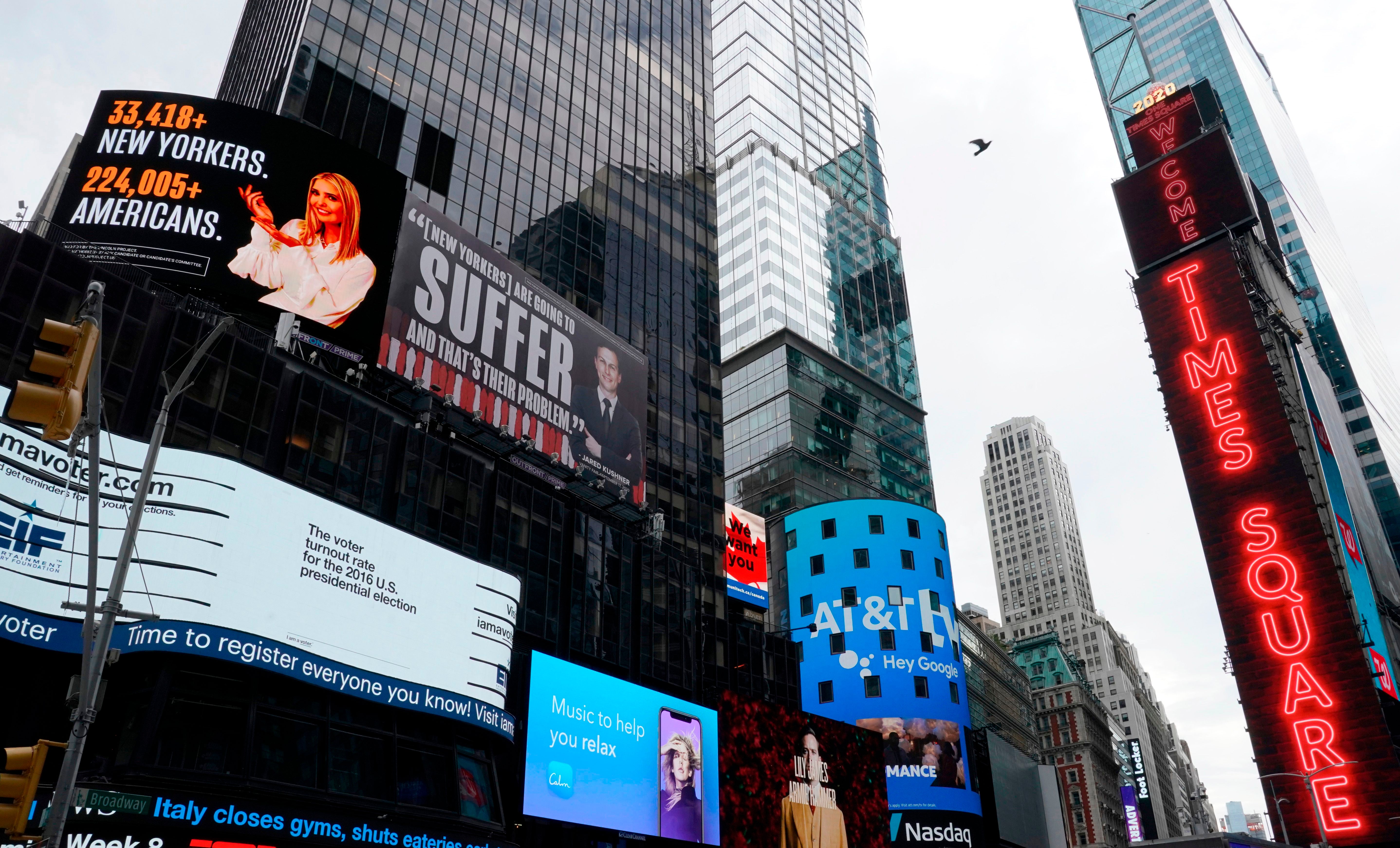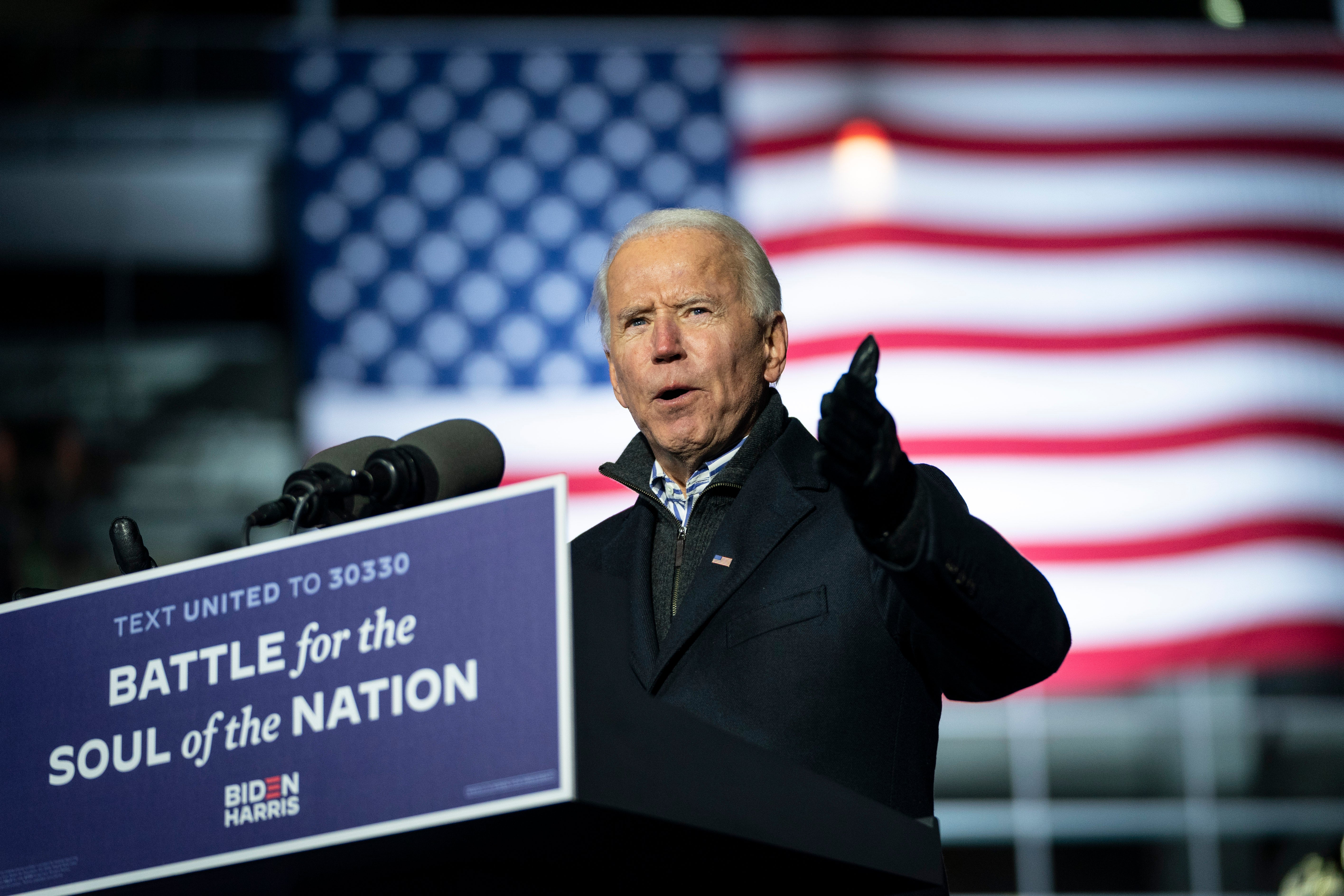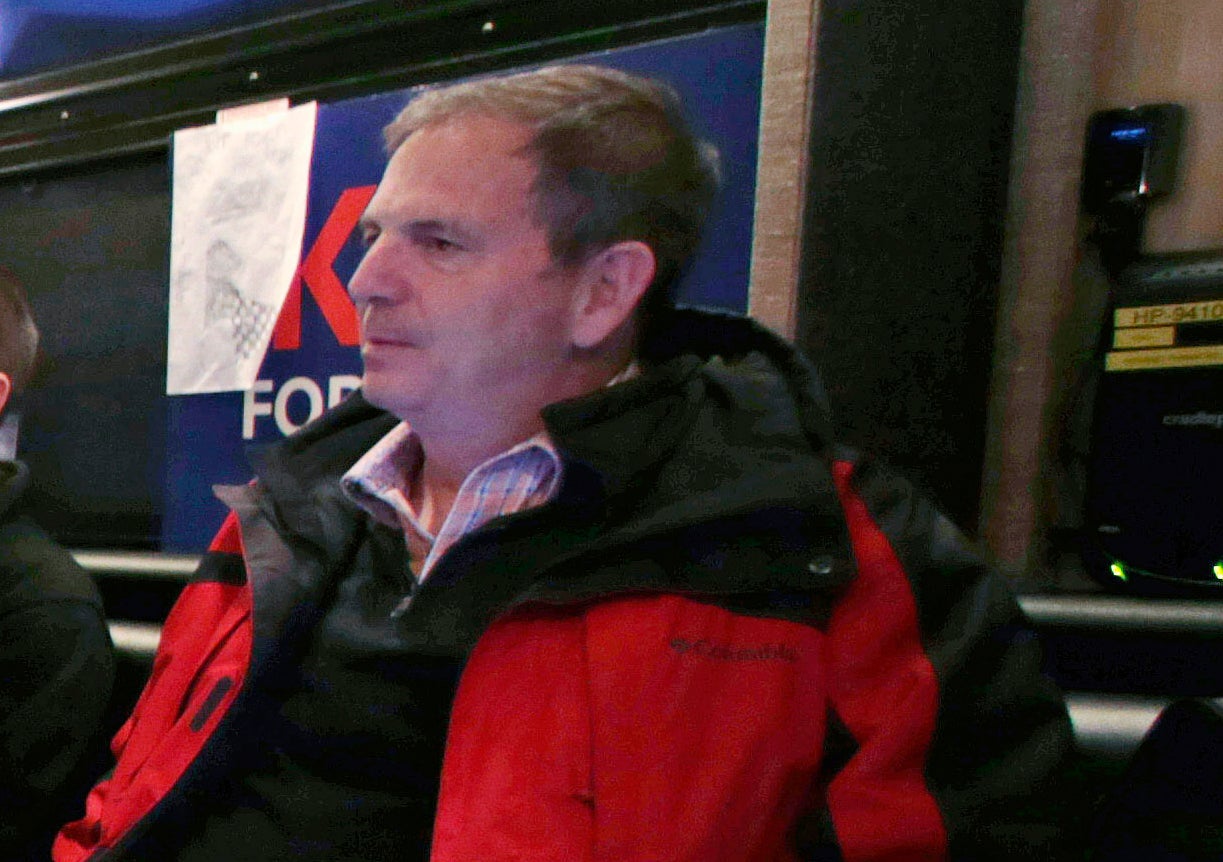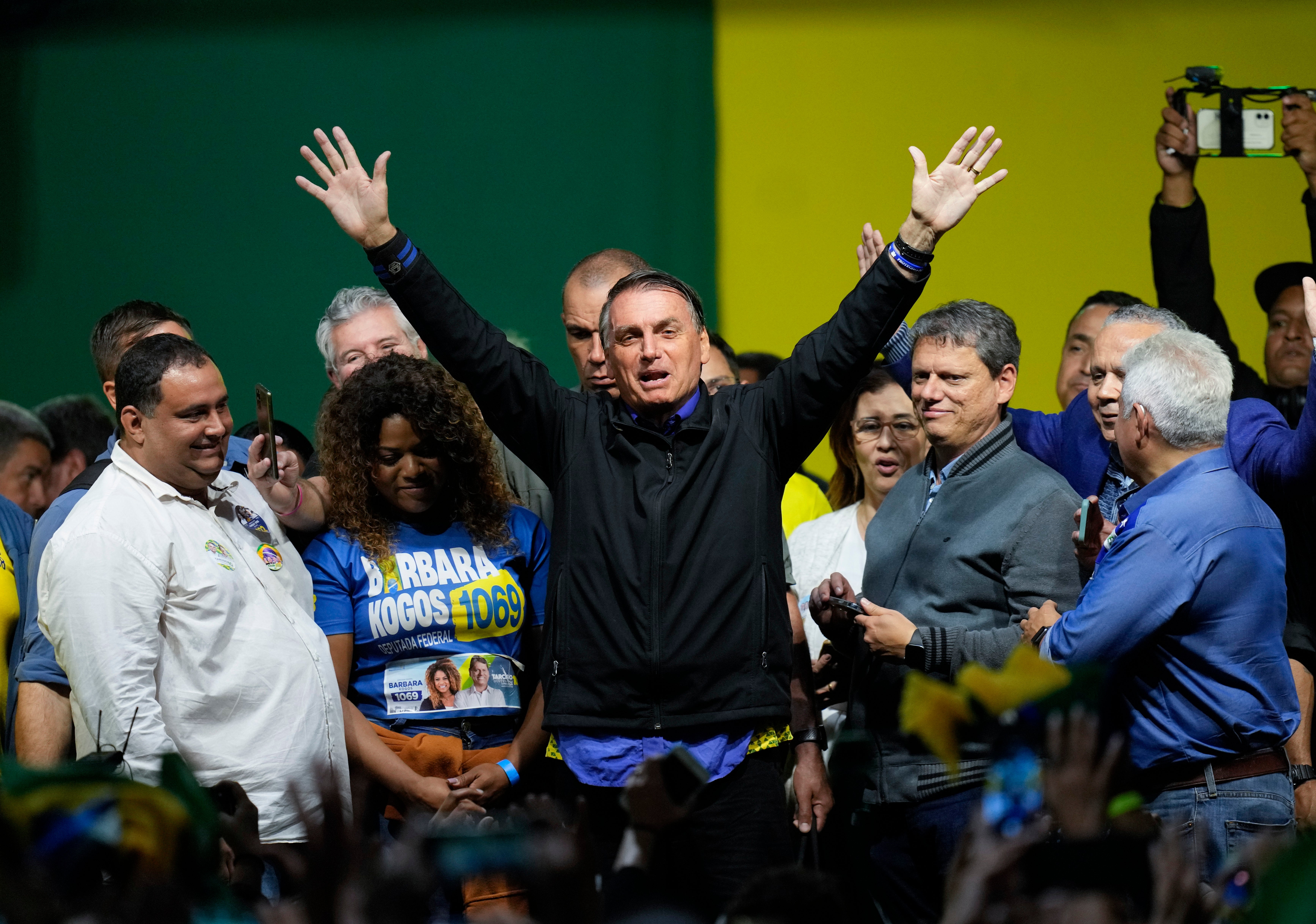
At the beginning of 2021, Jennifer Horn, a co-founder of the Lincoln Project, a political action committee founded by disenchanted Republicans that became famous in 2020 for its biting, viral ads against Donald Trump, received a shocking phone call.
“I feel like I’ve become a victim of what I’m fighting against,” a former intern for the PAC told her.
At the time, after an election spent painting Mr Trump as a shameless, dangerous liar, the evidence was piling up that John Weaver, a co-founder of the Lincoln Project, had pursued numerous young men, including one child aged 14, offering career help getting into politics in exchange for sexual favours.
The Lincoln Project had been warned in writing of Mr Weaver’s predations as early as June of 2020, according to the Associated Press, and knew of “rumblings” dating back “decades” about the allegations even sooner, according to one former staffer, but allowed Mr Weaver to remain with the group throughout the election anyway. He left the Lincoln Project in January of 2021, not long before a New York Times exposé reported on 21 separate allegations against the operative. (Mr Weaver has apologised and said he thought the interactions were consensual.)

Founded by GOP operatives in late 2019 to battle Mr Trump, the Lincoln Project moved lightning-quick to the centre of the political conversation. It engaged millions with its sharp-elbowed content, became a prominent thorn in Donald Trump’s side, raised nearly $90m from donors, and, as the group argues, helped tip the 2020 election to Joe Biden, saving democracy itself in the process.
Along the way, however, as is clear in the new Showtime docu-series The Lincoln Project, from directors Karim Amer and Fisher Stevens, the group exhibited many of the same behaviours it sought to battle in Trumpism: a propensity for secrecy and scandal; a willingness to use hardball tactics and viciously attack opponents; and an addiction to media outrage and the financial and political gain it can yield.
As co-founder Steve Schmidt himself admits in the show, which began airing this month and will broadcast its final episode on 4 November: “The idea that the Lincoln Project story is the story of the good people against the bad people is a very naive take on this.”
The Lincoln Project’s raison d’être was defeating Donald Trump, and any final judgement on the group will likely hinge on how much it truly did to oppose the former president and his ideology. From the data that’s out there, it’s inconclusive whether the super PAC alone can claim credit.
According to the Lincoln Project at least, it was clearly a success in stopping Mr Trump.
Rick Wilson, another co-founder of the group, tells the camera crew that the Lincoln Project is “the greatest super PAC in American history”.
“We have run a psychic warfare campaign on Trump that is unprecedented in presidential elections,” he added. “No one has ever f***ed with a candidate like we f***ed with him.”
Mike Madrid, another co-founder, who left the group in December of 2020 amid a contentious fight for control of its board, agreed.
The Lincoln Project was never trying to win the hearts and minds of all of America, he said. Rather, the group was trying to reach a concept it called the “Bannon line,” after former Trump adviser Steve Bannon, who said that if about four per cent of Republicans were persuaded to vote for Biden, Mr Trump would lose his re-election bid.
“We made a definitive impact on the outcome of the race,” Mr Madrid told The Independent. “We were not exclusively the reason for it. But what we showed is we could bring just enough Republicans to a position where they thought Donald Trump is too extreme and remove him from office.”
“There was a boost in morale,” he added. “I’ve never seen a PAC capture the hearts and minds of popular culture. It served as a way for people to channel energy and hope.”

Indeed, at its autumn 2020 peak, the group was regularly attracting millions to its ads on social media, as well as a burgeoning media slate including a podcast and a TV show, at times rivalling mainstream news networks.
The cultural impact of its work was obvious. Its projects, be they new Facebook ads or a stinging billboard in Times Square calling out the Trump administration’s Covid policies, were greeted in the political media like new Beyoncé tracks, the objects of fascination, analysis, and a barely contained glee.
They also clearly got under the skin of Donald Trump himself, who spared no opportunity to attack the group he branded as the “Losers Project” and Republicans in Name Only, or “Rinos.”
But how did that translate to the polls?
Post-election analyses suggest that Joe Biden defeated Donald Trump in part by peeling off independents and suburban voters in key states who had previously voted Republican or not voted at all, just the kind of persuadable people the Lincoln Project was targeting.
One study of Lincoln Project ads on Twitter, from Priorities USA, a top Democratic super PAC, found that the Lincoln Project’s ads were best at firing people up who already supported Joe Biden, and actually tended to get less persuasive with battleground state voters the more viral they went.
The Lincoln Project, however, argues such ads were only the public face of the group, and that a great majority of its ads were directed through a sophisticated data operation to target key demographics in key counties and states.
Mr Madrid estimates the group ran about 1,500 ads altogether during the 2020 election, 95 per cent of which the general public never saw.

Beyond the unclear question of its electoral impact, there’s the even more nebulous matter of what kind of impact the Lincoln Project may have had on US political races as a whole. In seeking to challenge what it saw as Donald Trump’s shameless greed, conspiratorial mendacity, and pathological vanity, the group faced allegations that it resorted to the exact same things.
The latter episodes of The Lincoln Project show how, as Donald Trump challenged the results of the 2020 election, the group was hamstrung by personal and legal infighting about its future and control over its board, leading to limits on the actions it could take – and, more crucially for a political communications outfit, what it could spend money on to say to the American public.
Most bruising was the John Weaver scandal. In the documentary, co-founder Reed Galen says the group had its lawyers investigate initial allegations that had been raised in the summer of 2020, as Mr Weaver was on medical leave, but was unable to take decisive action both because the named accusers didn’t want to file a formal complaint and the full board didn’t vote to go further. The Lincoln Project leader also told the documentary crew he felt the allegations became public in part because of a concerted campaign against the group.
“It was a bunch of right-wing, Trump-aligned trolls who had been working on this for many many months,” he said. “They were out to get us.”

The group was also rocked by allegations in early 2021 that an inner circle of founders secretly paid themselves a fortune using $27m transferred to firms they controlled, exploiting the same controversial campaign finance loopholes as the Trump campaign, either as a means of personal gain or a way to set up a post-2020 for-profit media company. (The group has denied any secret deals or wrongdoing, insists it followed all campaign finance laws “to the letter” and never set up a media company beyond some initial paperwork, and said it used this payment structure to pay conservative partners and vendors who feared reprisals for working with the Lincoln Project.)
“I didn’t make $27m,” Mr Galen says in the documentary. “Far, far, far, far from it.”
It’s hard to miss in the documentary, as the operatives of the Lincoln Project slam people like Donald Trump and Georgia Senate candidate Kelly Loeffler for their out-of-touch wealth, that much of the show takes place in a series of swanky conference rooms, office buildings, and apartments and homes around Utah and beyond. Each new ad is discussed as a way to raise more money, and at one point Mr Wilson sounds more like a start-up founder than a political activist, talking about the potential that the Lincoln Project will earn its principals “generational wealth” through a massive “A round” of investment funding.
The Lincoln Project declined to speak with The Independent for this story.
When Mr Madrid was asked whether donors should trust a group that made so much money, he pointed to his remarks in the documentary itself.
In one scene, Mr Madrid compares their operatives to pro athletes, who deserve a high salary because they’re great at what they do.
“There’s nothing wrong with making money,” he said. “Take a celebrity athlete, right? If you look back at the year 2020, and you ask the average opponent of Donald Trump if they’d be willing to pay a professional athlete salary to some political consultant who came in and would do the best job of taking on Donald Trump, they’d say yeah, all day long.”
Thanks to the group’s opaque finances, however, most donors probably know more about the salaries of their favourite athletes than the consultants of the Lincoln Project. And the documentary tracks both the internal fallout and the external criticism from donors and partners, as the group moved from one scandal to the next.
The group also acknowledges in the documentary that it aped many of the former president’s tactics in trying to defeat him.
“What Donald Trump did in 2016 is manipulate the media by being that commodity that everybody had to cover, that sucked up all the oxygen from the other candidates,” Mr Madrid says in one scene as he gazes up at the Lincoln Monument in Washington. “What we did as the Lincoln Project was we turned that on him. That’s how races are going to be run in the future.”
It’s a style of politics, however, that even Lincoln Project members warn may be corrosive in the long run.
“At a certain point, I think we all have an obligation to say, is making money out of an outrage machine helping democracy or is it hurting it?” he tells the documentary. “After 30 years, does that wear on your soul? F*** yeah, it wears on your soul. Anybody who says it doesn’t is full of crap.”
To the Lincoln Project adviser Stuart Stevens, this trade-off is both noxious and worthy.
“There’s nothing noble about us in the least. The cause is noble,” he says in one of the final scenes of the docuseries. “You don’t have to think we’re good people. You don’t have to agree with us. You don’t have to like us. But we’re useful if you really believe this is a fight for democracy. If you really believe it’s an existential fight, you need every useful son of a b**** you can get on your side.”
Since the 2020 election, the group has continued to operate, though not quite as central to the zeitgeist as it once was.
The drama has continued, of course, as just last week co-founder Steve Schmidt, who has since left the group, ripped the Lincoln Project and its leaders for “some of the most despicable and unethical behaviour I have ever seen” and called for massive structural reforms or for the group to shut down.
Contrary to last election season, during the 2022 midterms, the group has spent more than it raised, according to Open Secrets, taking in over $27m but spending nearly $31.5m on ads and other activities in key races around the country for Democrats.
It has continued in its signature ads to go after leading Republicans, from Donald Trump to Georgia congresswoman Marjorie Taylor Greene and Florida governor Ron DeSantis, but Mr Madrid argues the fight the group launched in 2020 is part of a bigger vanguard to defend democracy around the globe in the face of rising authoritarianism.

Through recent trips to Ukraine and Brazil, he’s seen the threats that our new world, with its plutocrats and social media politics, can pose to free and fair elections.
“You have to meet the opposition where it’s at. The idea of going high when the opponent goes low, I think, was proven as a little bit fanciful, but increasingly we have to question if it’s good for democracy if the solution is to continue to go lower and lower and lower,” he said. “At some point, you’re degrading the social fabric to the point where democracy can’t work.”
“We’re really at a moment in world history when we’re going to ask ourselves if democracy is well suited to the digital age,” he concludes. “I’m not too sure.”







